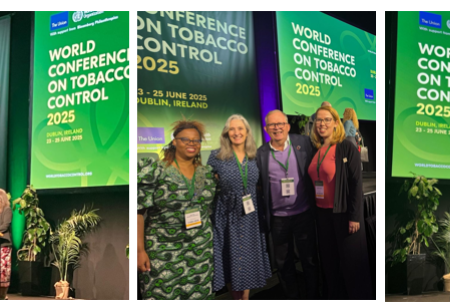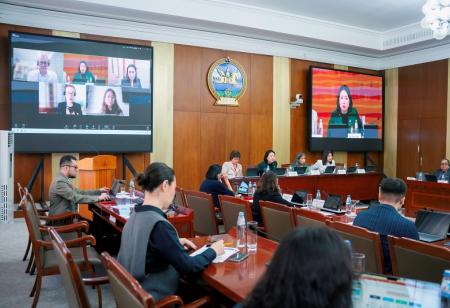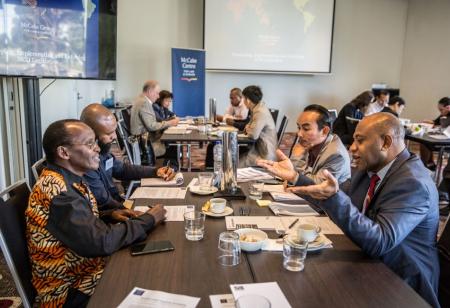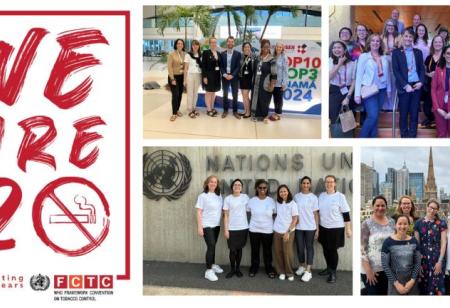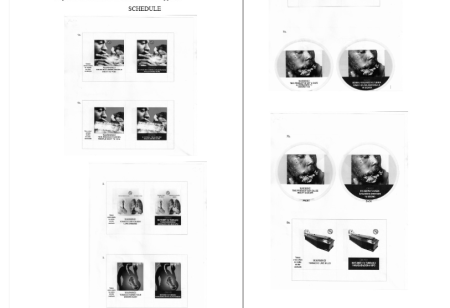
The Philippine Supreme Court upholds tobacco products regulations - 11 October 2022

The Philippine government has celebrated an important win over the tobacco industry in a decision ten years in the making. The Philippine Supreme Court en banc has overturned a 2011 decision of a trial court which granted the petition filed by the Philippine Tobacco Institute against the government to declare the tobacco regulations of the Food and Drug Administration (FDA) invalid and unconstitutional for exceeding the Department of Health’s (DOH) rule-making powers.
The decision paves the way for strong tobacco control regulations to be adopted through the FDA, including the foundation of regulations to implement Articles 9 and 10 of the WHO Framework Convention on Tobacco Control (WHO FCTC) in the country. It also clarifies the importance of the Philippines’ international obligations under the WHO FCTC under the Philippines’ constitutional law.
The law being challenged
In 2009, the Philippines enacted the FDA Act to ‘enhance and strengthen the administrative and technical capacity of the FDA’ and to ‘ensure the FDA’s monitoring and regulatory coverage over establishments and products under its jurisdiction.’ The FDA Act also governs all ‘health products,’ which the law generally defined as ‘products that may have an effect on health which require regulations as determined by the FDA.’
In 2011, the FDA issued the FDA Regulations, which expressly placed tobacco products under the FDA’s regulatory authority. The FDA Regulations included provisions directing the FDA to prepare and recommend appropriate rules and regulations and other issuances for the approval of the Secretary of Health, pursuant to the DOH’s responsibility to protect the public’s health against the injurious effects arising from the use of tobacco and tobacco products. The FDA Regulations also included a provision on protection against tobacco industry interference, in accordance with Article 5.3 of the WHO FCTC.
The legal challenge brought by the tobacco industry
The Philippine Tobacco Institute (PTI) challenged the regulations, arguing that the Inter-Agency Committee – Tobacco (IACT) had exclusive regulatory jurisdiction over tobacco products under Republic Act No. 9211 or the Tobacco Regulation Act of 2003, and making a number of other arguments challenging the FDA’s authority to regulate tobacco products. The IACT is an inter-agency body created by the Tobacco Regulation Act tasked to exclusively administer and enforce its provisions on smoke-free environments, tobacco advertising, promotion and sponsorship, access restrictions, packaging and labelling, and other tobacco control measures. The IACT is chaired by the Department of Trade and Industry, with the Department of Health as Vice-Chair, and includes a representative of the tobacco industry as a member. PTI has historically held the position representing the tobacco industry on the IACT.
The trial court granted PTI’s petition. In March 2012, the DOH and FDA filed a Petition for Review to appeal the trial court’s decision. A number of members of Congress intervened in the case. The Supreme Court’s decision arises out of this appeal.
The court’s decision
In a decision dated 13 July 2021 (published June 2022), the Supreme Court upheld the regulatory powers of the DOH and the FDA over all tobacco products, and declared the tobacco regulation provisions of the Rules and Regulations Implementing Republic Act No. 9711 (FDA Regulations), to be valid and constitutional. The Supreme Court ruled that the FDA Act clearly establishes the FDA's regulatory jurisdiction over all products that may have an effect on health, including tobacco products. It also noted that the Inter-Agency Committee on Tobacco’s regulatory jurisdiction does not prevent the FDA from also having regulatory jurisdiction over tobacco products.
The Supreme Court also noted that certain contested provisions in the FDA Regulations are aligned with the Philippines’ international commitments under the WHO FCTC, citing Article 5.3 of the WHO FCTC which requires state parties to protect their tobacco control policymaking from tobacco industry interference. The Supreme Court ruled that ‘the Philippines’ entry into the WHO FCTC represents its commitment to give priority to its right to protect public health, in particular, to implement tobacco control measures to reduce continually and substantially the prevalence of tobacco use and exposure to tobacco smoke.’ It noted ‘that the WHO FCTC has become operative as part of national law in the Philippines in accordance with the Constitution, and that accordingly, as a national health authority, the DOH along with the FDA must consider the country’s commitments under the WHO FCTC in exercising their regulatory powers over health products.

